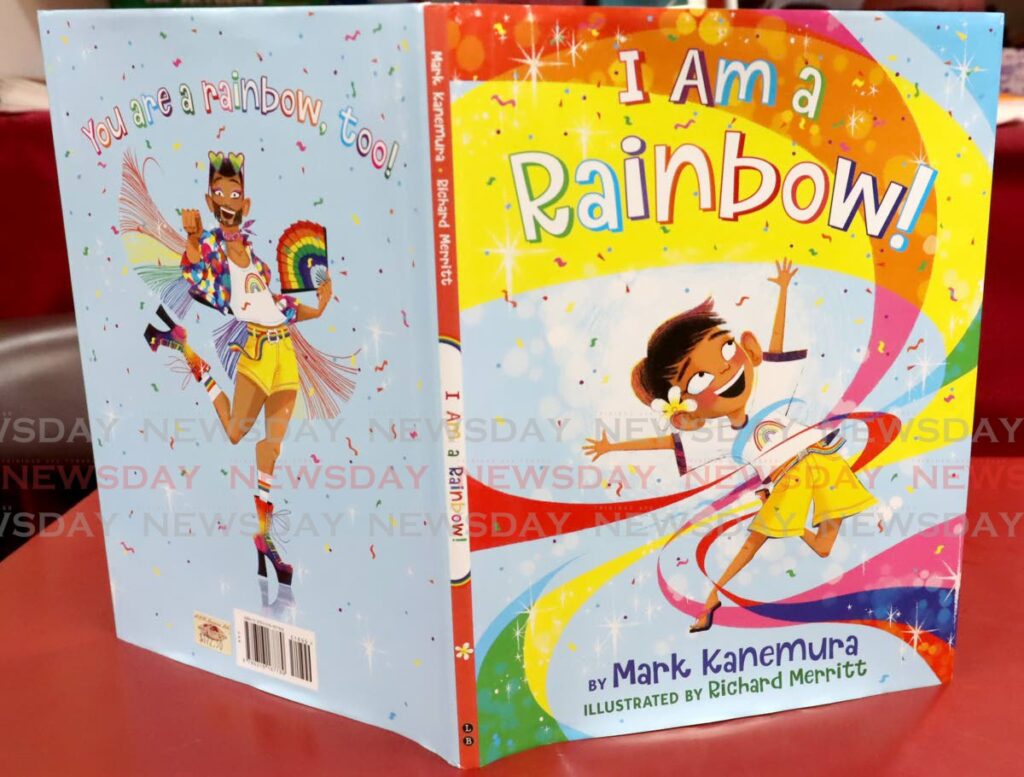Escaping our cultural cocoon

THE EDITOR: In recent weeks a number of religious leaders have reacted to books on sale by RIK Services Ltd. Included among them is I Am a Rainbow by Mark Kanemura, a professional dancer who happens to be a member of the LGBTQI+ community.
This book is based on his childhood in Hawaii and encourages readers to find safe spaces that allow them to “shine bright.” The book seeks to celebrate self-acceptance.
The reactions of religious leaders suggest fear, insecurity and ignorance on their part as they try to address issues of human sexuality over which no one has authority.
It was reported that the president of the Inter-Religious Organisation (IRO) said, “The book should be a no-no in this country. I have not seen it, but I have heard about it…I would support banning that book.”
How can someone want to ban a book when they have not read it? Religious leaders should make all attempts to exit their cultural cocoon, especially when the mythical stories which have been invented by men collide with reality.
The pundit also called for segregation of LGBTQI+ people and said, “They should not be mixing with the population.”
Some religious leaders continue to believe that moral laws were given by some powerful man in the sky and as a result fail to embrace the ethical obligations which they ought to have as regards all humans and their conscious experience.
In addition, in his homily on June 25, the Archbishop of Port Spain said that “Catholics must not be afraid of speaking the truth…” But which truth is the archbishop talking about? Is it the mythical truth that has been passed down through stories written by men; fictional truth derived from the imaginations of men; subjective truth that tells an individual that he is right no matter what, or is it objective truth where we keep an open mind to learn and know before we conclude?
To insist that gender is binary is to deny the vastness of human complexity. Everyone has an identity that ought not be policed. When one insists that gender is binary, they are in effect refusing to allow people to define themselves. Is it because their own self-definition is being destabilised?
The archbishop also told his listeners to be “confident in what they believed.” Is it belief based on indoctrination and conditioning or is it belief based on knowledge? Theologians, preachers and anyone who love to pontificate should be familiar with science-engaged theology.
A most recent (March 13) statement by Cambridge University Press says that “science-engaged theology aims to serve as a reminder to theologians that the local tools and products of the sciences ought to be sources for theological reasoning.”
This engagement “…also encourages theologians to collaborate with colleagues in other disciplines in a highly localised manner that enables theologians to make concrete claims with accountability and show how theological realities are entangled with the empirical world.”
Thus, it will serve the archbishop well to have meaningful conversations with the University of the West Indies (UWI)'s Institute for Gender and Development Studies before he makes these baseless utterances.
Another response came on June 26 from the Sanatan Dharma Maha Sabha (SDMS) in a media release. It stated, “With so many gender distinctions and gender fluidity, there is a risk teachers may inadvertently raise unbridled curiosity and exploration among pre-pubescent and pubescent students.”
Is this conclusion data driven or is it mere assumption by the SDMS? There seems to be a pre-empting of comprehensive sexuality education (CSE) which ought to be part of our schools’ curriculum. Why is there this resistance to something that is natural and needs to be understood?
UNESCO in its most recent publication on this issue has stated that CSE “aims to equip children and young people with knowledge, skills, attitudes and values that empower them to realise their health, well-being and dignity; develop respectful social and sexual relationships; consider how their choices affect their own well-being and that of others; and understand and ensure the protection of their rights throughout their lives.” We should all be pleased with this.
In conclusion, it is very clear that our religious leaders are closed-minded and may very well be resisting knowledge and information that are vitally important to the health and well-being of all our people.
The complex nature of human sexuality and identity requires learning and understanding. Let us not ban books but read them in pursuit of our own growth and personal development, which will help us embrace every member of our community with love and respect, no matter how different they may be.
REV ELVIS ELAHIE
(retired)
via e-mail


Comments
"Escaping our cultural cocoon"